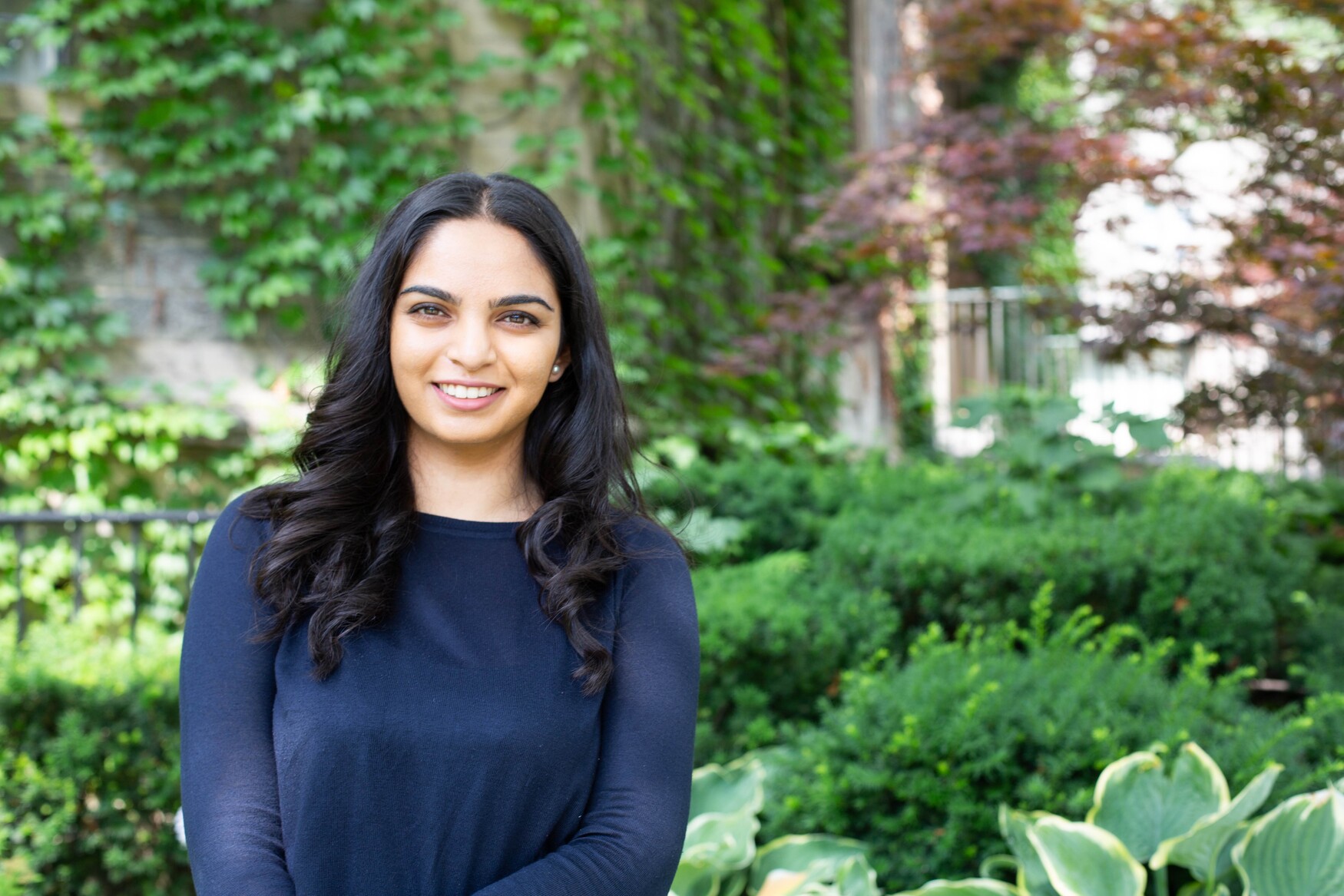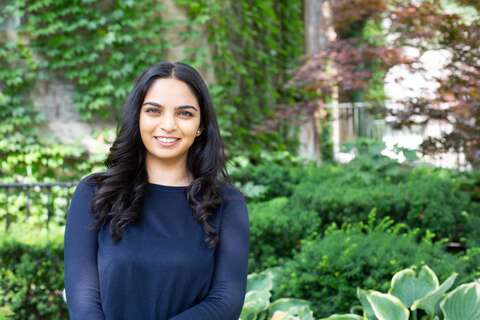

What made you want to become a doctor?
For most of my life, I was interested in pursing a career in research. I found the idea of allowing my curiosity to steer my career very appealing. However, once I began to work in research, I realized I wasn’t satisfied with simply conducting a study, publishing a paper and moving on to the next project. What I found equally rewarding were my actual interactions with research participants and working through their individual needs and concerns, because I was able to have a direct positive influence on them. Throughout my undergraduate degree in Global eHealth, I also developed an interest in systems innovation, technology and health equity. As such, I began exploring for careers in which I’d be able to integrate research, working with people, and advocacy. After speaking with several healthcare professionals, I found the physician-scientist route to be the best fit!
Have you had mentors or role models who’ve helped you along the way?
I’ve been fortunate to have mentors in many different capacities, including my parents, research supervisors and professors. However, some of the most valuable mentorship I’ve received has been “horizontal mentorship” from my peers. Sharing our experiences and learning from each other has been helpful in so many different ways - from advice on work-life balance to medical school interview preparation. I’m really looking forward to continuing to learn from my peers in my diverse UofTMed class!
What specialty do you hope to pursue and why?
I find aspects of several specialties very appealing - emergency medicine for its global health applications, surgery for the rapid technological innovation in the field and internal medicine for the wide range of complex medical issues seen. I’m really looking forward to shadowing a variety of physicians these next few years to help shape my decision.
If you got accepted to other medical schools, why did you choose U of T?
I chose U of T because you really are “boundless” here, in the sense that you can explore absolutely any interest you have. For example, I have a deep interest in health technology such as artificial intelligence (AI) and data analytics as they apply to medicine. I knew I’d be able to explore all of these here, especially with the newly launched Vector Institute for Artificial Intelligence. In fact, I’ve already connected with the AI in Medicine Student Society here and will be working with them this coming year to organize some very exciting events for the UofTMed community!
Another reason was UofTMed’s strong commitment to diversity in medicine. In 2015, I founded MedX Canada, a non-profit organization that helps students navigate the medical admissions process in Canada and find mentors, with a special focus on encouraging students from Indigenous, racialized, low-income and rural-residing background to pursue medicine. When I learned that U of T had existing initiatives in the same vein (e.g. BSAP, Community of Support), I knew that I’d have plenty of opportunities to continue working to tackle this issue.
Why is this issue important to you?
I’m a child of immigrants and I know that the opportunity for my sister and I to pursue high-quality education was a primary driver behind my family’s decision to come to Canada. It was frustrating for me to learn that there are people in this country who don’t have access to the same opportunities due to socioeconomic barriers. I also learned that a lack of diversity in medicine can have many negative consequences - from low cultural competency in patient care to inadequate understanding of the issues affecting to marginalized communities. As such, I decided to use my privilege and platform to advocate for this important cause.
What are you most looking forward to as a UofTMed student?
Making lifelong memories and friendships! While medical school will bring its share of academic and emotional challenges, I know that going on this journey with my peers will result in the formation of strong bonds that are going to last far beyond medical school.
What do you like to do outside of school?
I love staying updated on what’s happening in the world through documentaries and political talk shows. I’m also trained in Indian classical dance, which keeps me connected to my culture and helps relieve stress. Recently I’ve developed an interest in interior design and architecture of cool spaces, so I’m really looking forward to exploring every corner of Toronto these next few years.
Faces of U of T Medicine introduces you to some of the interesting people studying in the Faculty of Medicine. From advising political leaders to providing care to Toronto’s most vulnerable populations, members of our community are having an impact at home and around the world.
Do you have an interesting story to share? Contact us at medicine.communications@utoronto.ca.